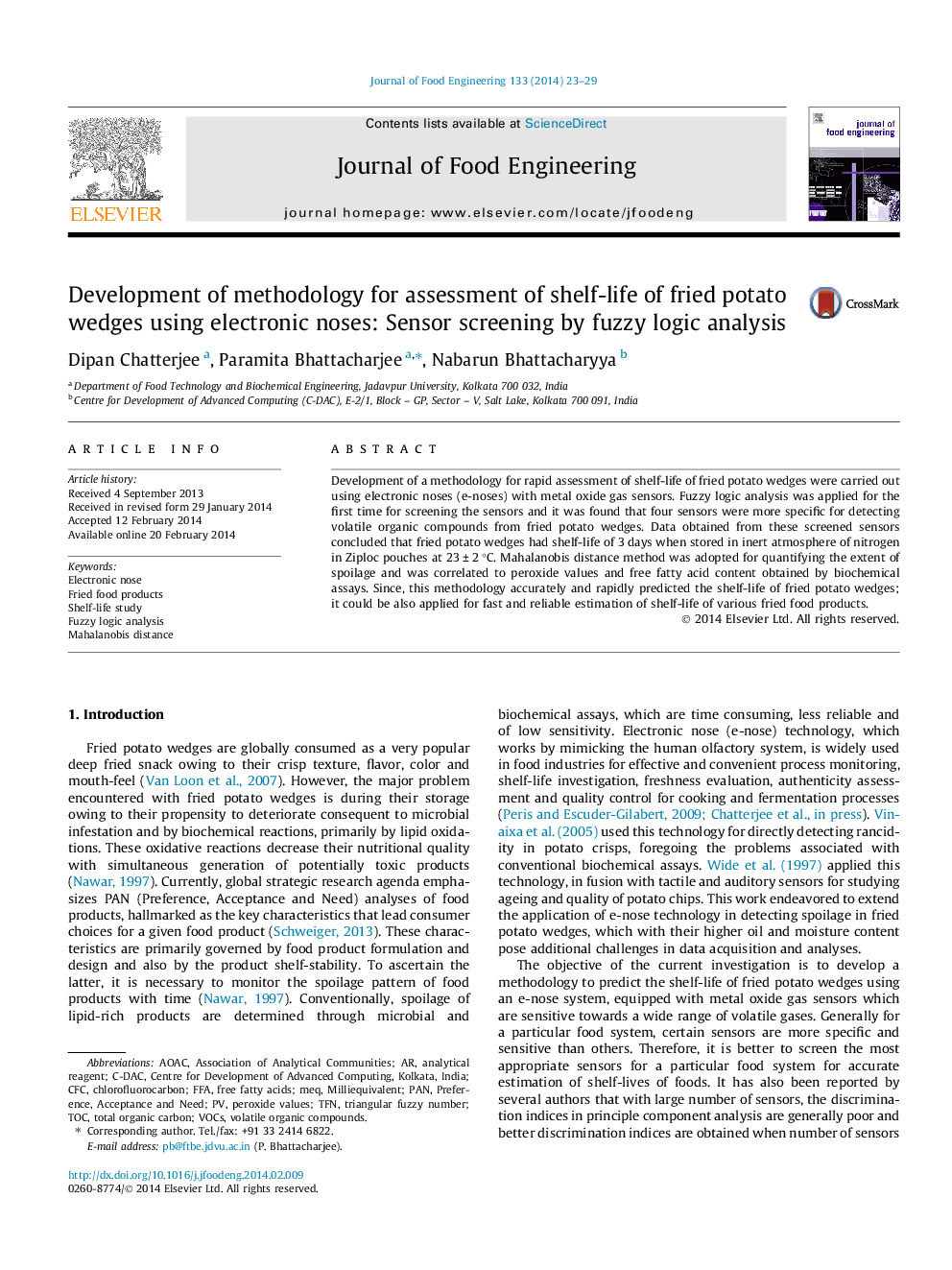| کد مقاله | کد نشریه | سال انتشار | مقاله انگلیسی | نسخه تمام متن |
|---|---|---|---|---|
| 223145 | 464338 | 2014 | 7 صفحه PDF | دانلود رایگان |
• Methodology development for shelf-life assessment of fried potato wedges by e-nose.
• Screening of appropriate e-nose sensors by fuzzy logic analysis.
• Development of spoilage index for fried potato wedges from Mahalanobis distance.
• Correlation among data obtained from e-nose and biochemical assays.
Development of a methodology for rapid assessment of shelf-life of fried potato wedges were carried out using electronic noses (e-noses) with metal oxide gas sensors. Fuzzy logic analysis was applied for the first time for screening the sensors and it was found that four sensors were more specific for detecting volatile organic compounds from fried potato wedges. Data obtained from these screened sensors concluded that fried potato wedges had shelf-life of 3 days when stored in inert atmosphere of nitrogen in Ziploc pouches at 23 ± 2 °C. Mahalanobis distance method was adopted for quantifying the extent of spoilage and was correlated to peroxide values and free fatty acid content obtained by biochemical assays. Since, this methodology accurately and rapidly predicted the shelf-life of fried potato wedges; it could be also applied for fast and reliable estimation of shelf-life of various fried food products.
Journal: Journal of Food Engineering - Volume 133, July 2014, Pages 23–29
